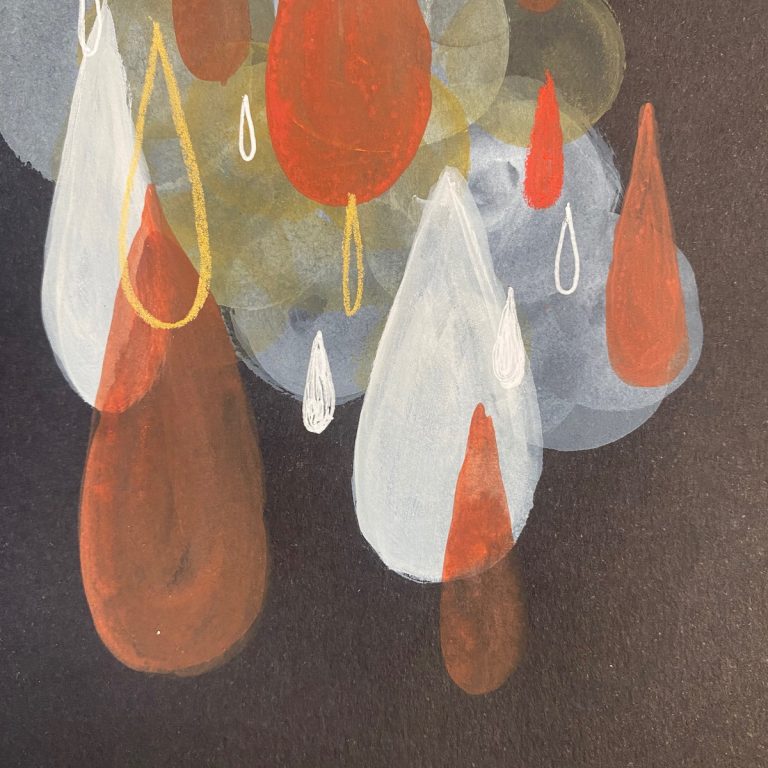When the great, late film critic Roger Ebert awarded the mostly-maligned Speed 2 a whopping three out of four stars in 1997, many people likely thought he had lost his touch. How could he have given something that was met with near-universal negativity a rather positive score? He defended himself eloquently, though surely left many unconvinced. Still, isn’t there something to be said for a piece of work that achieves exactly what it set out to achieve? Isn’t there a certain validity to a film — or an album, a poem, anything — that has nothing more or less than its creator’s specific goals, and actually meets them?
Not everything that’s enjoyable needs to be entirely successful, and vice versa. Some things set out to do a specific thing, and do it well. Tara Jane O’Neil’s new record, Dispatches from the Drift, released under her TJO moniker, sets out to provide a sustained mood, one of reflection, pause, natural wonder. It is being issued to the world to “use however [we] like,” according to O’Neil.
These 11 songs are made up almost entirely of long, winding synthesizer improvisations. Occasionally a guitar or a voice sneaks in, but it’s a relatively solemn and spartan affair. And while Dispatches is nowhere near Speed 2 in terms of, well, almost anything, it does have one similar facet: it does what it does well, even if it’s not always entirely satisfying from all angles. At just over an hour, Dispatches can be a bit of a grueling listen, even despite the beauty of much of its contents.
Opening with a muddy melange of Grouper-esque keys and rippling guitar on “A Sunday 2020”, O’Neil’s voice comes in like a specter, the words almost impossible to discern. It’s a decidedly mournful start to a record that, mostly, provides listeners with a splendid escape from reality, like a sojourn through your own mind, or getting lost in a mazing dusky forest. For an album that is sort of New Age-adjacent in tone, its textures are sometimes less heavenly and more purgatorial. We’re caught in this moment with O’Neil, ensnared.
Luckily, much of it is quite lovely. “Wind With Dog” contains a hypnotizing keyboard progression, backed up with tiny field recordings. “Phaser Secret” is a fairly dramatic but oddly moving dirge, nearly oceanic. “Preparing for Brigit”, the longest song here at over nine minutes, has a nearly-cinematic quality to its keys; the melodies are carnivalesque, akin to something múm might do, and the shape of it shifts subtly over its duration. It’s also one of the brighter, more optimistic entries in the tracklist, much of which dwells in that unsettled in-between zone.
The album, according to O’Neil, was never really meant to be shared, which might be why some of it feels a little perfunctory. Even the titles are bluntly matter of fact: “Phaser Secret” has a waving phaser effect hissing up and down in the background; “Heavy Tremolo” features distorted keys ringing out under, yes, a heavy tremolo effect; and “Pump Sounding” has a wheezing organ-like lead that plods in and out as if pumping. The improvisational nature of the songs, too, leaves a bit to be desired. Outside of some really pretty textures and melodies — which O’Neil likely simply stumbled upon — much of the album meanders, most egregiously in songs like “Pump Sounding” and “Ventura Tuesday”, where sounds repeat and cycle for minutes on end.
And yet the album never claims to do anything other than what it does, and O’Neil has a strong enough handle on her various keyboard textures and production ideas that even the more banal moments provide some intriguing sonic ideas, and in its best moments, Dispatches from the Drift is downright gorgeous. This is highly meditative music made in a highly meditative state, which shines through throughout its 63 minutes. It does what it does well, and in that sense is successful. It doesn’t ask for much in return. It might not leave the biggest impact when it’s over, and it doesn’t always reward close listening, but it’s transportive and peaceful, which is, sometimes, enough.

